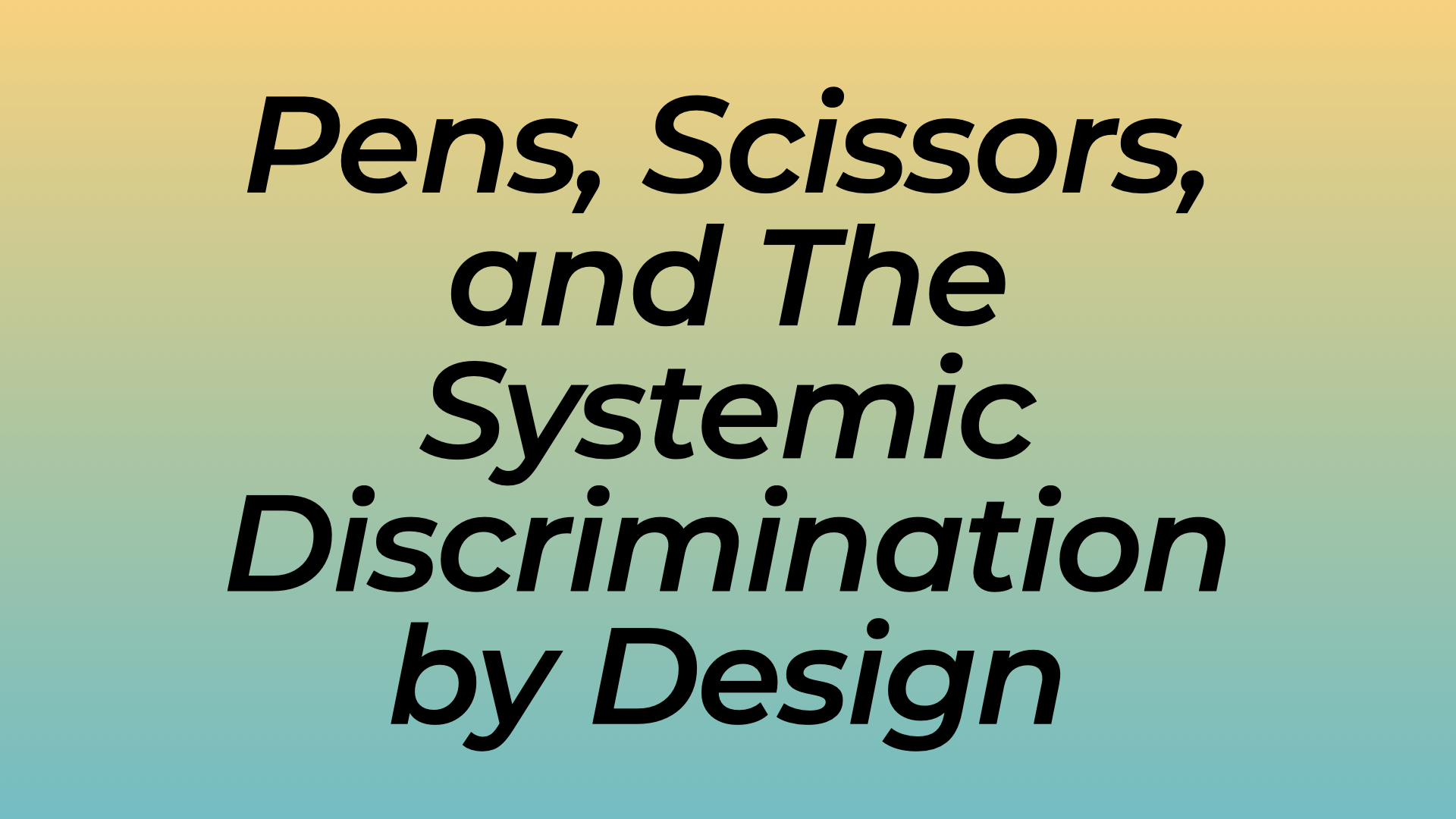One of the questions I think that isn’t asked enough is “who is missing?” If you’re not asking this question when you’re designing or building something, there’s a good chance your work will exclude some people —whether you want it or not. Of course this question works in many other places too, but I wanted to share three recent examples I’ve personally experienced that all revolve around tools. I think these small stories are the symptoms of something we should be dealing now.
Task Manager Hell
For years, I’ve tried maybe dozens of task and time management app and never managed to settle on one. Until 2020, I always blamed myself for that, and after March 2020, I blamed my ADHD. But for some time, I was thinking about why it’s happening, and Clive Thompson’s article made it all come together.
All these apps have strong opinions about how one should live and work. And it all comes from the personal experiences of the founders and designers and their experiences. They think they’ve found the perfect method for themselves to achieve “peak productivity” and decides to sell that to everyone as the magical solution. The problem: I don’t live like them, at all.
Since my life doesn’t look like theirs and my need for a task manager doesn’t come from my goal to achieve “peak productivity” none of them really works for me. I need a tool that will help me to minimize the negative effects of how my brain works, not one that’ll help me better adjust to the late capitalist work ethics. But since the people who make those apps doesn’t think about who will need these tools and why, their marketing pitches fall flat for me every time.
Left Handed Scissors and Ballpoint Pens
One thing that caused me a lot of headache since my childhood is being left-handed. I still remember the traumatic period during the sixth grade when the teacher who taught Religion class told doing anything with left hand is haram. (That event also made me read religious texts more closely, which turned me into an atheist.)
Although my parents never forced me to change hands, I never had any kind of help to better understand what being left-handed means or what kind of issues that might cause. For example, I kind of knew that some tools were designed mainly for right-handed people and doesn’t work well on the left, but no one told me what those are, or I’ve never really seen the left-handed versions of them.
That’s why a couple of weeks ago, I impulse bought left-handed scissors. For a long time, I always thought I’m not good at things like cutting because I just didn’t have the skills. But when that scissor arrived, it all changed. Forcing myself to use something that isn’t for me was the problem all along.
I had a similar revelation about pens, too. Until recently, most of the pens I’ve tried —especially the ballpoint ones— were always acting out. Never writing correctly, their tips not working, it had ink but wasn’t dispensing… I always thought I’ve wasted my money on a broken pen. Recently, I was only using Uniball Jetstream pens because those never caused any problems to me.
When I was reading about pens and notebooks (which is something I do regularly) I’ve come across a sentence about how Jetstream pens were a left-handed favorite. Then I decided to dig around to find the reason, and I did: it was about how the pen’s mechanism designed.
I’ve learned that most ballpoint pens has a mechanism and ink that favors right-handed people. When you’re writing with your right hand, you pull the pen and the ink flows smoothly. But left-handed people push the pen, and most ballpoint pens are not designed to work well with that. So, you get pens that are not disposing ink properly, got stuck or act like they’re out of ink. Since Jetstream had a different design, it didn’t have any issues with left-handed people and works as expected.
Who is Missing?
These are all small examples compared to systemic problems that results from the same short-sightedness. What we all see as systemic discrimination is most of the time comes from how those systems designed. When people who has the power to decide how things are going to work doesn’t bother asking “who is missing in this scenario”, we’re left with a system that excludes so many people. It doesn’t matter if it’s publishing, media, technology, architecture, city planning or policymaking; the result is always the same.
If you think what I’m saying is an overreach, just think about the parts of your daily life for a moment and how it could turn into a problem if you’re someone else. An example if you’re not sure where to start: does your city accessible for someone blind or on a wheelchair? Can they go anywhere they want just like everyone else?
We face with another problem when we decide to talk about these issues. People who has the power —or the privilege to live in a system that’s designed for people like them— tries to convince everyone these are not critical issues. They say there are more urgent problems that needs their time and attention and people should just “stop making it a big deal”. Since it’s not their problem, it’s not critical enough. This is how we end up normalizing all kinds of discrimination: sexism, homophobia, transphobia, ableism, racism, xenophobia, and the rest becomes the norms of the system because it’s not a big deal for the ideal peoples of the system.
(Also, this has a lot to do with the market logic that runs the world: taking only the people that has enough money/vote/influence seriously. But we’ll talk about it later.)
This problem is not that hard to solve, you just need to listen. People who are left out by design already does everything to make their voices heard, offer solutions to these problems, and make the available solutions more visible and accessible. All people need to do is start asking “who is missing”, start listening and including them in the process. I know this means some people will have to give up the power they have, but that’s precisely the point.


Leave a Reply